The title isn’t clickbait. Bryan’s cofounder described his movement as a “cult” and Bryan himself said on VICE that “Don’t Die is a religion” and that he wants people to put their savings into a “Don’t Die managed fund.”
Finally, my 31 days of reels/shorts on Bryan Johnson are coming to an end. This type of investigative journalism work has been incredibly time consuming but it’s been worth it considering the endless messages I’ve received from people thanking me for exposing deception. That said, I’ll be glad to complete this project and return to working on my usual content.
The last piece of the Bryan Johnson that I need to cover is his Don’t Die movement which he has described as everything from a “religion” to a “political and economic system.” For now, I can’t see how Don’t Die warrants anything more than a discord server.
I’ve laid out why I’ve dedicated so much time to exposing this guy in a different post but for now: Bryan is the biggest rising health influencer on social media so, we should want to know where he’s planning to take all his followers.
Bryan’s plans for how to use his influence appears to be to gain as many followers as possible for his Don’t Die religion. I’m not being snarky, Bryan Johnson and his cofounder have un-ironically described Don’t Die as a “cult” and a “religion.”
He also apparently wants your your hard-earned savings: He’s said on the VICE podcast that he wants people to “take their savings and put it into a Don’t Die managed fund” while discussing having “a trillion dollars under management.”
Creator of the Scientology religion, L. Ron Hubbard, has been famously quoted as saying:
"If you really want to get rich, start a religion."
When Shawn Smith of VICE asked if Bryan Johnson was trying to be a new version of Joseph Smith, Bryan said “my competitor is Jesus.”
I’ve laid out countless pieces of evidence for instances of Bryan Johnson being misleading, hypocritical, or his stated motivations not matching his actions. You can go through my 30 day series, look at all the examples I’ve provided and decide for yourself whether it’s fair to call him deceptive or not. Even big fans of Bryan’s who were previously sticking up for him in the comments section of my videos eventually would admit the criticism can’t be dismissed. One person removed their Blueprint affiliate link from their twitter profile after watching my video. Given everything I laid out in my 30 day serious, I personally definitely wouldn’t invest my time or money into Bryan Johnson’s movement.
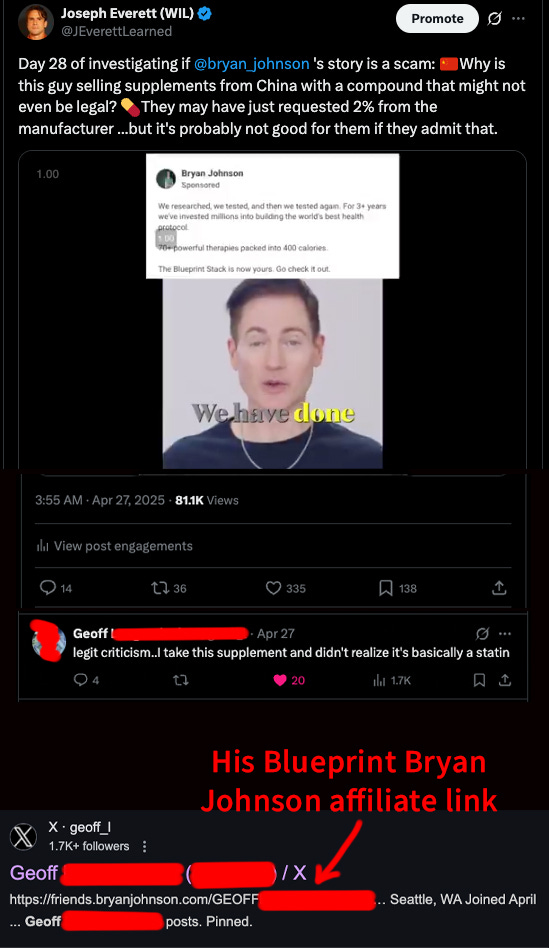
This article is a lengthy one, but it’s definitely worth digesting as Don’t Die seems to be the final goal that Bryan Johnson is putting all his energy into. If you know anyone who seems impressed by the Don’t Die philosophy or is thinking about participating in a Don’t Die dinner, definitely share this with them and see what they think.
Does Bryan care about his followers?
Let’s take a brief look at the man creating the Don’t Die religion. When someone is apparently aiming for the position of actual cult leader, we should be extra interested in their character.
The main thing I’ve noticed about Bryan is that he seems to be a master of using Doublespeak:
After researching his story for quite a while, I now think he is someone who does not care about using words to clearly communicate truth or his intentions, but words are simply another tool for the purpose of achieving whatever his goal is.
Let’s explore some examples of why.
For example, Bryan went on various podcasts bragging about how his nighttime erections are superhuman … but apparently did not think it was important to remind those podcast hosts that he takes 2.5mg of the erectile dysfunction drug Cialis.
Bryan’s BP5000 scandal put a massive question mark on the idea that Bryan is a benevolent man aiming to improve the health of as many people as possible. Here’s a quick recap on that story (which was laid out in Day 25 & Day 29 of the series):
・He started a “5,000 person self-experimentation study” where he got over a thousand participants to pay around $2000 to participate. It was aimed at assessing the health effects of his Blueprint products over 90 days
・He said in writing he would give everyone the full data set upon completion
・The study finished, he ignored the members’ pleas for the full data on discord, and to this day, over a year later he has not shared the full data set
・The BP5000 discord revealed that people were experiencing all kinds of side effects - everything from GI issues, disturbed sleep and even ringing in the ears.
・He’s either deleted the BP5000 discord or made it inaccessible (according to all the participants I could get in touch with) and he blocks people on twitter who ask him about BP5000
・One of the participants, J. Paul Neeley (who Bryan blocked on twitter) tells his story here about his experience with BP5000. He ends by saying he still has ringing in the ears after stopping the products
According to publicly available court documents, he allegedly fired an employee of his after they were diagnosed with cancer, he removed their health benefits, and took away their stock options.
Despite him saying many many times that he shares “all” his data, I’ve provided several pieces of proof that he simply does not come close to sharing “all” of it. In Day 26 and other videos, I’ve revealed how he often makes impressive health claims without providing proper proof. He finally blocked me on twitter recently. The block came swiftly after I said I didn’t buy his excuse about his suspicious vo2max score being due to ‘unreliable’ testing equipment.
When saying ‘I’m the healthiest person on the planet,’ because he has allegedly the “best” biomarkers, Bryan doesn’t care that:
・‘healthiest’ is as nebulous as a term as ‘the most human person’
・no one was competing for this title
・no one even agrees on what the “best” biomarkers are
・he (amazingly) cherry-picked his best scores from a span of two years
・he makes laughable claims like his hypothermic body temperature is actually healthy and that it doesn’t affect his thyroid … yet he’s taking thyroid medication
・he has several biomarkers that are just objectively bad
Even though Bryan’s own lead doctor very clearly told him that his claim about epigenetic age reversal should be taken with a “barrel of salt,” Bryan went on to brag on podcasts and his Netflix documentary that he set a “world record” for epigenetic age reversal of 5.1 years. He denied two opportunities for experts in the field to administer the epigenetic age test to verify his claim. Then, the New York Times said that his age hadn’t reversed 5.1 years, “but the results of a range of internal studies of his health between January 2022 and February 2024 showed it had increased by as much as 10 years, according to charts of the blood test results.”
Another example of words just being a tool for Bryan: he didn’t care about the sheer hypocrisy of having a video on his Youtube channel with almost a million views saying “AG1 does not deserve your trust or your money” because they pay creators a 20% commission for advertising their products …all the while doing pretty much the exact same thing on his end. According to an email from Blueprint that a particular creator shared with me, Blueprint was offering them 20% commission for advertising Blueprint’s products.
With this in mind, let’s explore Bryan’s Don’t Die philosophy and whether it’s legit or not.
In this article, I’ll explain why:
・Don’t Die isn’t profound. It’s too vague to be useful.
・Bryan spends more time on vague storytelling to make Don’t Die seem impressive, rather than clearly explaining the specifics of how Don’t Die works.
・A substantial chunk of Bryan’s Don’t Die dinners seem more like psychological tricks or persuasion techniques rather than actual clarification of what Don’t Die is.
・If the Don’t Die discussion feels tedious or tiring, it makes you wonder: is that by design? We’ll discuss the implications of this…
・I can’t see how some of Bryan’s explanation of Don’t Die isn’t just word salad like: “computational narrative physics substrate of our existence.”
・Bryan has claimed Don’t Die is a “political system,” an “economic system,” an “ethical and moral system,” and that it is an “operating system of society” that rivals “democracy and capitalism and socialism.” I couldn't find anywhere where Bryan gives any specifics of how Don’t Die meets the criteria for any of these things.
・It’s unclear how it is more than an inspirational slogan like ‘let’s all be healthy!’
・Bryan’s own assumptions about AI seem to contradict his logic on ‘AI alignment’
・Even if people want to donate their savings to a “religion” based around ‘let’s all be healthy,’ I think Bryan is the last person for the job
Along the way, we’ll learn an important lesson in how to protect yourself from Doublespeak.
Theranos was a blood testing company that managed to reach a $9 billion dollar evaluation. They claimed to have technology that could dramatically simplify routine blood testing by running dozens of tests off a single drop of blood. Except, it was all fake. The technology didn’t exist and the founder, Elizabeth Holmes is now serving an 11 year prison sentence for defrauding investors. The style of Bryan’s messaging reminds me of how Theranos captivated investors - not through clear explanation of the details, but through emotionally compelling visions of the future that weren’t examined with critical thinking.
On to the Big question…
What exactly is the core philosophy of Bryan Johnson’s religion and why do I call it “The Cult of Doublespeak” ?
What exactly is Don’t Die?
“don't die is a religion don't die is an economic system don't die is is a political system don't die is an ethical and moral and social system”
During my investigation for my 30 day series on him, I consumed a LOT of Bryan Johnson content. I’ve also consumed a ton of content on this “Don’t Die” concept - having watched two different 90 minute Don’t Die dinner videos (the one with Miranda Kerr and the one with Logan Paul), read Bryan’s posts about Don’t Die, read articles from people who have been to the dinners, and have personally had conversations with multiple people who have been to these dinners.
After all this investigation into Don’t Die, the big concept seems to just be:
“Let’s be healthy …and we hope that we live long enough for superintelligent AI to make us immortal.”
Honestly, that’s it.*
*On the surface, that may sound like an OK idea for some. However, even if you want to pursue a goal as vague as that, we’ll explore later why I don’t think Bryan isn’t the right person for the job.
Cult leaders say ‘doomsday is coming, so join my religion.’
Bryan Johnson says: ‘superintelligent AI is coming, so join my religion.’
In fact, these two concepts are even closer than you think considering Bryan seems to actually see this future AI as some form of deity. He said in an interview with Bari Weiss: “I think the reality is that we are creating God.” He reiterated this in another video saying: “…when you’re giving birth to god— godlike abilities…”
So, why does he say “it takes 2.5 hours of focused dialogue to even begin to understand Don’t Die?”
The rest of the conversation seems to me to be one of two things:
(a) Doublespeak and word salad which is necessary make this unimpressive idea seem amazing
(b) A psychological tactic to draw people into the cult*
*This is not a random jab. Again, his cofounder Kate Tolo called it a cult.
William Lutz, author of the book Doublespeak (which I did a video on several years ago) says there are four types of Doublespeak. The one that Bryan employs most often is:
The 4th type of Doublespeak - Inflated Language
"inflated language that is designed to make the simple seem complex or to give an air of importance to people, things, or situations."
In his Don’t Die Dinner with Miranda Kerr, Bryan Begins by saying: “this is the most consequential conversation on planet earth.” He says this very slowly, emphasizing every word. Except, the thing with Bryan is that he’s always claiming that he or something he is doing is ‘the best in the world’ or ‘the first in the world.’ Like the boy who cried wolf, after you see the pattern, the words begin to lose all weight.
Here’s one example of how Bryan uses a lot of impressive sounding language to describe Don’t Die without actually communicating much about it.
In the Don’t Die dinner with Logan Paul, this is what Bryan says when he first introduces Don’t Die:
“Don't die is a human narrative. … It's also an ideological system. So it's peer is democracy and capitalism and socialism, and it is an operating system of society. It is a mathematical construct, it is computational in nature and it is based on physics, entropy. So it is an ideology that maps to all the layers of intelligence. Human storytelling, computational abilities in computers, mathematics, physics, and a practical reality. It's a theory that combines all intelligence.”
Be honest. How much of that makes sense to you?
・What exactly does it mean for something to “map onto a layer of intelligence?” What layer of intelligence does ‘fish need water to live’ map onto? What layer of intelligence does ‘breathing is good’ map onto?
・What exactly does it mean for something to intersect storytelling along with physics? Would you say the movie Oppenheimer “maps to” two different layers of intelligence because it’s a story about physics?
Before we proceed, let me point out that it’s going to seem like I am making fun of him or not giving him the benefit of the doubt. However, keep in mind that: the natural human impulse to kindly give others the benefit of the doubt and try and imagine what others mean when their words don’t add up is… exactly why Doublespeak works.
If someone is asking you to invest your money into a cult and they say something that doesn’t make any sense, trust your gut. If it doesn’t make any sense, it’s their job to make it make sense. Don’t try and do mental gymnastics for them to guess what they might mean.
OK maybe that above quote will make more sense if I give you the rest of it. Here’s what he said following the above quote:
“So when AI, we give birth to AI, we say existence is the highest virtue and we build don't die across the fabric of all of intelligence. That becomes the primary operating system for the human race. …All intelligence, all biology, all of humans, all animals, all the planet. Like, we build don't die as the computational narrative physics substrate of our existence.”
・At this point I still don’t know what Don’t Die is and in any case, how do you build something “across the fabric of all intelligence?” What exactly does that mean?
・What does it mean for something to become the “primary operating system” of an entire race? What is the current operating system?
・I can’t see how “computational narrative physics substrate of our existence” isn’t just word salad.
Much of this doesn’t make any sense to me* and it’s not my job to interpret it in order make it make sense. Making that make sense is the job of the person who’s claiming that he invited you to “the most consequential conversation on planet earth.”
*As we’ll see, actually, my my ‘not knowing’ what Bryan means I am in fact employing the most advanced form of intelligence.
The Don’t Die Dinner
The Don’t Die dinners are Bryan’s format for trying to communicate what exactly Don’t Die is. So far he’s posted two different Don’t Die dinner sessions on his Youtube. They always start out with the same thought experiment.
1. The big thought experiment:
“If you had access to an algorithm that could give you the best physical, emotional and spiritual health of your life, but in exchange for that, you did what the algorithm said. You went to bed when it advised. You ate what it recommended. You exercised when it suggested. Would you say yes or no?”
Maybe this thought experiment is fun for some, but I don’t see how it does anything to enlighten us on what exactly Don’t Die is.
So, what is the purpose of this thought experiment?
Based on the structure of the Don’t Die dinners, and the questions that follow, the goal seems to be to emphasize his idea ‘that not knowing is intelligence’ (which we’ll explore in a moment). In fact, he basically says this himself at 18:15 in the dinner with Miranda Kerr - he says the purpose of the algorithm thought experiment is to “create a space of unknowing.”
His brain teaser that follows the thought experiment is:
“What do we humans do when you’re giving birth to superintelligence? This is the most important and pressing question on planet earth.”
After some discussion on this question, he reiterates people’s answers back to them and then dramatically says “notice that nobody here said we don’t know” before he goes into a speech about why “not knowing is actually an incredibly powerful form of intelligence.”
Whether you think the thought experiment about an algorithm is interesting, there is no algorithm that gives you “the best physical, emotional and spiritual health of your life.”
Blueprint is not that algorithm. Bryan doesn’t have that algorithm.
(1) Bryan Johnson does not have “the best physical health.” As I’ve laid out in Day 4, Day 11, Day 12, Day 15, Day 16, Day 26 … Bryan Johnson’s health claims are very unimpressive, unsubstantiated, or just misleading. We don’t have any reason to believe he’s transparent with all his health data. After citing several examples of him being opaque with his health data despite bragging everywhere that he ‘shares all his data,’ he finally blocked me on Twitter after I pointed out he provided no proper proof of his vo2max score.
He finally posted actual blood test results this month, and many markers were just objectively bad.
He doesn’t have impressive night time erections either - he’s taking the erectile dysfunction drug Cialis.
(2) If Bryan has an algorithm that yields “the best emotional health of your life,” why is his co-founder discussing her depression here?
(3) What does “spiritual health” mean?
Whether you enjoy engaging with this thought experiment or not, it’s not explaining what Don’t Die is, it apparently is just a tool for making a point about “unknowing.” So, let’s look at where he’s going with that.
2. ‘Not knowing is the highest form of intelligence.’
Why do I say Bryan’s dinners are Doublespeak? Well, let’s keep in mind how William Lutz (author of the book on Doublspeak) describes it: “language designed to mislead, while pretending not to.”
Let’s also consider that two very effective ways for dealing with Doublespeak are to:
(a) Stick to the words presented to you to assess the person’s idea. Don’t try too hard to extrapolate to what they might mean.
(b) Ask questions. Ask specifics. If you don’t understand something, it’s their fault, not yours.
So Bryan says in the dinner that “not knowing is actually an incredibly powerful form of intelligence” and then launches into why Don’t Die is such a powerful, influential concept.
Actually, ‘not knowing is a powerful form of intelligence’ sounds a lot like one of the Party’s slogans in George Orwell’s 1984. One of the three slogans of the Party is: “IGNORANCE IS STRENGTH.”
‘Not knowing is intelligent’ seems like classic Orwellian Doublethink: the mental process that allows you to hold two opposing ideas in your mind at the same time and believe in both of them.
Here, the two opposing ideas are
・(a) ‘not knowing is a powerful form of intelligence’ and yet
・(b) Bryan Johnson knows what we should do about the future.
(a) Once you’ve said this, you need to stop talking.
Let’s let Bryan elaborate on this ‘not knowing’ concept:
“Not knowing is actually an incredibly powerful form of intelligence. In fact, wisdom right now in 2024 may be those who realize that not knowing is the highest degree of intelligence that a human can occupy. It’s no longer knowing. …given that we can’t model the world out, people who robustly know and predict are actually demonstrating their ignorance. …They think they know… So this is the biggest shift of human intelligence is we’ve always imagined the highest intellect as knowing - that’s who we respect and who we defer to. This is a unique time where not knowing quickly moves into the more powerful position.”
If not knowing anything is “an incredibly powerful form of intelligence” then how can you propose that you know anything about what ideology will be useful in the future, much less that Don’t Die could be influential, useful, or profound. It doesn’t make sense.
This may sound unfairly dismissive. I understand if you are thinking ‘no, wait, what he probably means is…’
However, let me repeat myself:
・The natural human impulse to kindly give others the benefit of the doubt and try and imagine what they mean when their words don’t add up is… exactly why Doublespeak works.
Don’t worry, I’ll still give a charitable interpretation a shot in a moment. Before I do, let’s move on to the second issue with this ‘not knowing’ bit.
(b) Attempts to have people doubt their ability to ‘know’ sounds like gaslighting
The definition of “gaslight” is: manipulate (someone) using psychological methods into questioning their own sanity or powers of reasoning.
・Leader of the sex cult NXIVM, Keith Raniere (who got female members to brand his initials on their hips), used his patented technique called Rational Inquiry to manipulate people. An important part of the process was to get people to question their existing beliefs about reality so he could manipulate their worldview.
・L. Ron Hubbard, creator of Scientology, came up with the concept of the “reactive mind.” According to his Dianetics book: Some of the data from the “time track” (the repository of all your brain’s recorded interactions with reality) leads to the creation of the reactive mind. The Scientology auditing process is necessary to cleanse your reactive mind and rid yourself of your irrational behaviors. As L. Ron Hubbard says in Dianetics, “any one of Man’s perceptions can be aberrated by psychic derangements,” so you need the help of Scientology. That is, the way your mind interprets reality is improper, so you need their help of Scientology because they know how to interpret reality.
NXIVM and Scientology are extreme examples. I’m certainly not saying Bryan’s religion has been shown to be outright abusing or stalking members, or doing anything as nefarious as these two cults. It may seem unfair to mention these two cults here, but if Bryan’s cofounder Kate Tolo is going to call Don’t Die a “cult” herself, I think it’s fair to at least ponder if Don’t Die dinners on some level parallel other cults’ initiation techniques.
Bryan could have saved himself a lot of time and just outright said something like ‘how the advent of super-intelligent AI is going to affect the world is exceedingly unpredictable but here’s why Don’t Die is useful….’ Frankly, If he did that, I wouldn’t have thought anything of it. The reason this stood out as odd to me is that spends a full 1/3rd of the entire discussion on impressing upon people that them not knowing is more intelligent.
“You become in a perpetual state of denial of your own reasoning power. You don’t reason anymore.”
Amy Bril, ex-member of the Children of God cult
How convenient it is that not knowing is an incredibly powerful form of intelligence, but Bryan knows that Don’t Die is the thing to do?
‘I’ve heard that argument before’ is not a rebuttal
While we’re on the topic of Scientology, let’s take a look at Bryan’s tweet calling people ‘NPCs.’ I can’t help but be reminded by L. Ron Hubbard’s saying that the average person is acting from their “reactive mind” on a “stimulus-response” basis as if their minds are just running an unoriginal cookie cutter program.
Sure, we shouldn’t accept everything that society tells us, but telling people that their thoughts are not original and merely decided by society sounds a lot like gaslighting.
When asked about what tough questions he’s received about Don’t Die, Bryan has said in the dinners that the responses to Don’t Die are almost entirely predictable. His son said they are “99% predictable.”
It’s a logical fallacy to assume that a new idea is more accurate or that an old idea is less accurate. In a debate about ice baths, saying ‘Oh come on, they’re so cliche, everyone is doing them’ does not prove whether ice baths are effective or not.
Whether an idea is original or not does not tell you how useful it is.
Is this discussion getting tiring? That might be the point.
Again, Bryan has said “it takes 2.5 hours of focused dialogue to even begin to understand Don’t Die.” If this is supposed to be a flex, it’s not. If your big idea requires that much time to explain, it probably isn’t nearly as profound as you think.
In an episode of Season 9 of the Simpsons, The Joy of Sect, a new cult called The Movementarians move into Springfield and try to recruit several Springfieldians into their cult. They warmly invite the townspeople to their free resort weekend at the Movementarians ‘welcome center’ surrounded by plenty of beautiful greenery. Homer enjoys a bit of fishing at the resort and is then invited to a free movie. The movie turns out to be a 6 hour long sales pitch on joining the Movementarian cult. At first, many of the townspeople are clearly bored and unimpressed by the whole thing, but with some subtle peer pressure, they are persuaded into staying for the whole six hours. After the closing line: “when you surrender yourselves to the Movementarians, you are guaranteed a perfect life of serenity, love, and loving serenity,” the townspeople loudly express their devotion to “the leader” with a glazed-over look.
Several cults have employed techniques to physically exhaust their subjects with abuse, sleep deprivation, protein restriction or even hypothermia. From this worn down state, it is much easier to get the person to surrender and accept the cult ideology. I am in no way saying Bryan nor any member of Don’t Die has ever done anything abusive like this. The question is: could Bryan’s long and meandering 2.5 hour discussion be inducing a kind of low-level mental exhaustion?
Dr. Elinor Greenberg has written that Narcissistic Word Salad refers to a deliberately confusing way people with NPD may speak to avoid being wrong or to avoid taking responsibility for something. Have you ever found yourself giving up on a conversation from exhaustion after trying to get through to someone who was consistently (intentionally or not) avoiding your points? After becoming sufficiently tired from a conversation that never lands on anything concrete, you may find yourself saying ‘OK whatever, you win.’
I was only listening to the dinners but even I was getting frustrated that it took so long to learn so little about Don’t Die.
It’s funny that Bryan has specifically said on a podcast with Dave Asprey that
“when I was doing my first media training… there was one thing I remember - they said you don’t need to answer the question. You’re there to explain what you want to explain, you’re not there to answer the questions.”
Bryan doesn’t argue with his guests, he’s quite polite, though if you watch the Don’t Die dinner episode with Logan Paul, you’ll see there are several instances where Bryan gives non-answers to several questions about the Don’t Die philosophy.
In the above video, Logan Paul asks a fair question given the nature of the discussion. To paraphrase the exchange:
・Logan asks: “Don’t Die begs the question: what is life?”
・After a lot of words, Bryan’s response is basically: “It means we’re not dead. …existence is the highest virtue.”
・Logan asks: “What does a death look like for AI?”
・Bryan says “It’s complicated” and stops the questioning.
So Bryan claims that the responses from the guests in the Don’t Die dinners are “99% predictable” …yet he can’t give an actual answer to this basic question.
The main point here is to highlight how slippery Bryan is with questions. The question itself might seem too philosophical, but when you’re talking about “aligning AI with Don’t Die” it seems perfectly valid to ask how you define life. Defining life would be good so the AI doesn’t say mistake “life” as ‘being braindead in a vat of nutritive goop.’
I can’t help but think that the mentally slippery and nebulous nature of the Don’t Die dinner tires the participants out to where some of them might just eventually agree with the philosophy without actually understanding it.
Rewinding a bit: A charitable interpretation of ‘not knowing is intelligence’
Perhaps what Bryan was getting at with ‘not knowing is intelligent’ was something like: ‘because the future is so unpredictable, we have to go back to first principles and take stock of what we are definitely sure is true.’ That is, we have to back to basics, and we know for sure that life forms don’t want to die.

Bryan has said “existence is the highest virtue.” In fact, he’s specifically said “existence as the highest virtue is the central principle of Don’t Die.”
First, I don’t see how “existence is the highest virtue” isn’t just gobbledygook. All virtues presuppose existence, this is like saying the most beautiful melody is a single note.
You don’t have to watch much sci-fi to realize there are some forms of existence that are not desirable. A big idea paired with the Don’t Die slogan is that we need to prepare for the coming of AI superintelligence.
If “Don’t Die” is our key imperative, what would prevent the super-AI from deciding that its perfectly acceptable to make us braindead and have us live out our immortal lives suspended in a nutritive fluid? This was basically the premise of the Matrix.
For someone so excited about the concept of “AI alignment,” Bryan doesn’t address the problem of perverse instantiations or the problem of ‘be careful what you wish for.’ If the central principle of the philosophy you want to bring into the AI era is just to exist, then doesn’t that present the possibility of humans being subjected to all kinds of wretched forms of existence at the hands of AI? While we’re considering the outlandish idea that “god-like” AI could solve the aging process, we might want to let our imagination roam a bit more before we decide upon the central, unifying principle that AI will (hopefully) follow.
What if our heads are surgically removed from our bodies and affixed to a life-sustaining roomba and we are doomed to live out or lives cleaning the floors for hundreds of pomeranians and chihuahuas? Don’t Die would have succeeded - we technically wouldn’t be dead.
The point is, your guiding principle can’t be that basic. Giving an aspiring pianist a lecture on how no melodies could exist without silence is a completely useless mental exercise for the pianist. Until we hear some more specifics, Don’t Die is simply not useful and doesn’t give us any sort of idea of how to organize our behavior.
You might think this is unfairly facetious, but Bryan actually said himself: “existence is the highest virtue is the central principle of Don't Die. It's an organizing system for behavior...” Organizing your behavior around ‘don’t be dead’ doesn’t make any sense when not being dead is a prerequisite for behavior. Don’t be dead doesn’t narrow down your to-do list.
You could have any other vague slogan like eternal happiness and it would already be more effective than Don’t Die because it would encapsulate Don’t Die. In order to be happy… you can’t be dead.
There’s also the second part of Bryan’s philosophy: god-like AI is coming and we need to align with it. Before we take a look at that, let’s explore why I think some people may still be impressed Don’t Die despite its logical shortcomings.
Maybe we do need a cult centered around ‘Let’s be healthy’ ?
On the surface, that doesn’t sound like a bad idea, right?
Recently I went to California and Texas for a longevity conference and a health optimization conference. I was looking at the labels of foods like I usually do and quickly noticed all kinds of additives that I don’t usually see in Japan- things like TBHQ or potassium benzoate. The American Haribo gummy bears have all kinds of artificial colorings like Yellow 5, Red 40 and Blue 1. These colorings are not in the Japanese Haribo gummies.
Anyone with even a slight interest in their own health or their family’s health is likely very frustrated with all sorts of aspects of the food system. Whether you like seed oils or not, you have to admit they’re really hard to avoid. It’s also very hard to avoid (especially in the United States) additives that have been shown to affect the gut like carrageenan, xantham gum, cellan gum, sodium benzoate etc. Many people are frustrated with the use of pesticides, the nauseating nature of factory farming, issues with air quality and so on.
Telling someone that we need to move away from Die and move towards Don’t Die might spring forth all kinds of thoughts about the current makeup of American society that is not conducive to good health. Because after all, to not die, you need to be healthy, right? A concept as basic and nebulous as Don’t Die might have people thinking it could mean that it will:
・Reduce the use of pesticides
・Reduce unwanted additives in our food supply
・Reduce bad fats in the food supply and replace them with healthy fats
・Reduce the cost of blood tests and routine health testing for the average person
・Tackle the issue of toxic heavy metals in food products
・Tackle the issue of antibiotic-resistant bacteria in hospitals
・Set up systems to improve air quality
It might even branch further into:
・Getting politicians to take their health more seriously so they can make better decisions
・Reduce the cost of testing food and supplements so we can consistently screen for quality
・Reduce screen time for children
・Prevent the dangers of rogue superintelligent AI in the future
Yes, all of this sounds nice… but How?
Elizabeth Holmes’ Theranos was actually going to tackle one of these: increase convenience and reduce the cost of routine blood tests. Her solution? Run dozens of lab tests on a single drop of blood.
Sounds great… but How?
The next step should have been to investigate whether what she’s proposing is actually possible given current technology. If that due diligence was done then it would have immediately been revealed that the company was a complete scam. Elizabeth Holmes is currently in jail for defrauding investors.
So let’s say that money put into the theoretical “Don’t Die managed fund” will be put towards projects on improving American health. We’d want to know how exactly that would be approached. Many people were surprised to learn that Bryan Johnson’s cocoa product had cadmium levels that may exceed EU legal limits. If true, this raises the questions: Is this the person you’d want to lead efforts to reduce heavy metals in food?

Then consider Bryan Johnson’s Red Yeast Rice supplement. Per NIH.gov, supplements with more than trace amounts of monacolin K “are considered by the FDA to be unapproved new drugs and are not sold legally in the United States.” One of the selling points Blueprint listed on their page was in fact that it had significant amounts (2%) of monacolin K. The issue is that monacolin K is “chemically identical” to lovastatin, a prescription drug - one that has well known side effects and potential interactions with alcohol, grapefruit, and other medications which consumers need to be warned about. I covered all this in a video.
Does this give you confidence that the Bryan Johnson-led Don’t Die religion is who we should trust for ensuring safety and quality of your supplements?
At the end of the day, a push to get problems like these solved is not new at all.
People have been promoting ‘let’s be healthy’ since, arguably, the advent of organized societies. Except, how to be healthy is always changing. In the past, blood letting was the exciting new way to be healthy and now it’s everything from ice baths and sauna to supplements. What’s more important? Diet or supplements? ‘Let’s be healthy’ can translate into a dozen different ideas depending on who you ask. For one person it means being vegan, for another it means being carnivore. Without specifics of exactly where you’re going with ‘don’t die’ or ‘let’s be healthy,’ the slogan is basically meaningless because it can’t be properly evaluated. Good intentions don’t translate to radical results for society.
Besides, like them or hate them, many of the above health-related issues are being looked at by the current administration and MAHA. So this isn’t a matter of ‘well no one is doing it, so we might as well have Bryan give it a shot.’
Further, even if we may imagine that Don’t Die may lead to organizing our efforts towards some worthy goals, remember a couple things about Bryan:
・He has ignored requests for the BP5000 data set on the side effects of Blueprint from the people who paid $2000 to be part of his study .
・He publicly questioned the mental fitness of his lead Doctor, Dr. Oliver Zolman, after he quit Blueprint for concerns about the company.
・Lawyer Matt Bruenig has written articles accusing Bryan of various unfair labor practices. (1,2,3,4)
・According to publicly available court documents, he allegedly fired an employee of his after they were diagnosed with cancer, removed their health benefits, and took away their stock options.
・It’s been revealed that he was simply using another company’s food delivery service and slapping the Blueprint label on it.
・Despite bragging about transparency, it was noticed that test results for his products were removed from the website after it was found that his products were not up to spec.
・He raised eyebrows when he happened to change his ‘Rejuvenation Olympics’ leaderboard to increase his standing right before a WSJ article about it came out.
・Further, has Bryan spent any of his millions on actually helping researchers to further longevity science? Well, he blocked Dr. Andrew Steele when Steele suggested he do that.
・And of course he has made all kinds of outlandish health claims without actually providing any convincing proof.
So the question remains: Is Bryan the type of person you would like to be leading the charge on all kinds of important issues?
The hole in Bryan’s logic about ‘AI alignment’
So Bryan has said that he believes AI will be unfathomably intelligent and have “god-like abilities.” If that’s the case, why would humans have any hope of ‘aligning’ with it? It would be like a scout ant seeing that humans were coming their way and deciding that they needed to align with the humans. We just simply wouldn’t pay attention to the ants and do what we were going to do, regardless of what an ant cult leader said.
Bryan said in the dinner that he chooses not to eat meat because:
“AI will become sentient in some form or fashion on some kind of time frame. I think it's possible that when it becomes sentient, it'll be like, how do you intelligent beings treat other intelligent beings that are less intelligent than you?”
I don’t think this logic makes as much sense as he thinks.
I’d bet Bryan swats mosquitoes biting him. All kinds of small wildlife die in the process of harvesting crops the crops that sustain a vegan diet. Everything from mice, voles, rats, gophers, bats, foxes, birds, owls, lizards, frogs, turtles to all kinds of insects are crushed by heavy machinery, shredded in mechanical harvesters or poisoned by pesticides. Why wouldn’t the AI extrapolate upstream to also consider the mistreatment of lifeforms necessary for sustaining a vegan diet?
Then, if Bryan were genuinely concerned about being a moral role model for future AI, why would he engage in behaviors such as allegedly firing an employee after they were diagnosed with cancer? Further, why would he engage in the wide variety of arguably deceptive behavior I’ve documented in my 30 day series on him?
The bigger point is: if a superintelligent god-like AI arises, the idea that it will give any regard to the philosophical underpinnings of any cult is completely arbitrary. Why would it prefer the cult started by a man who takes Cialis while bragging about night time erections over say… Scientology? If it does become sentient, it’s likely it will form its own values make its own decisions that will likely be indecipherable to us. It would easily be smart enough to realize that humans prefer not to die, even if you didn’t put your savings into a cult called Don’t Die.
The reality is that if it is possible to do anything now about how the super duper AI of the future will act or think, it will be up to those actually in the field. Influence will come from the engineers and researchers actually designing, training and setting guardrails for AI and not from Bryan Johnson, who is neither an AI researcher nor a recognized authority on machine intelligence.
I’m pretty sure the AI researchers are well aware of why it's a good idea to do what they can to program into sentient robots ‘prevent humans from dying,’ just as Isaac Asimov proposed way back in 1942 in the first of his Three Laws of Robotics:
“A robot may not injure a human being or, through inaction, allow a human being to come to harm.”




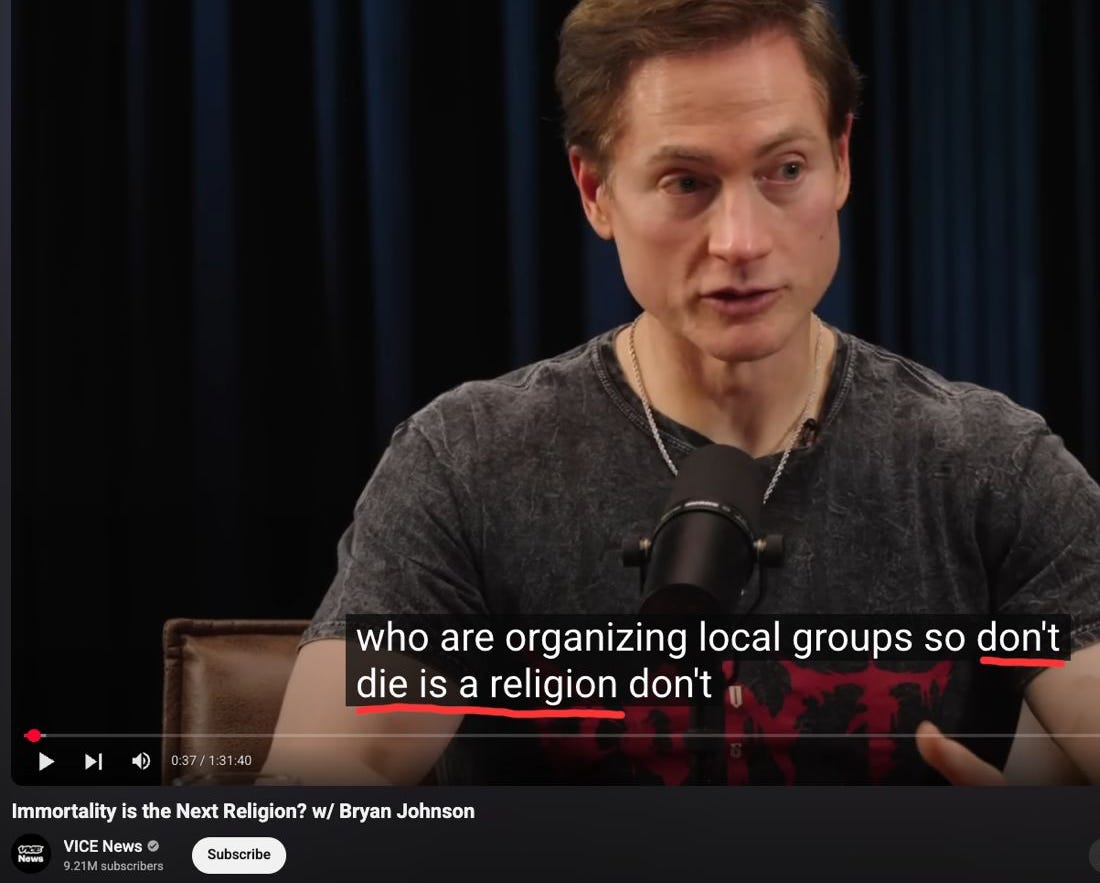




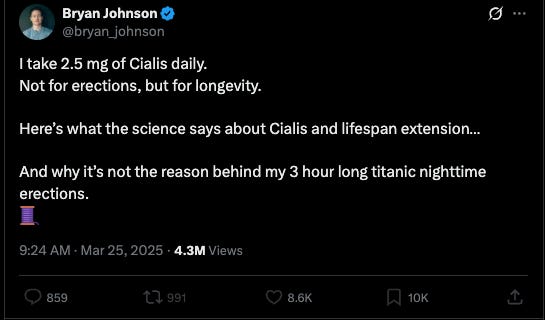



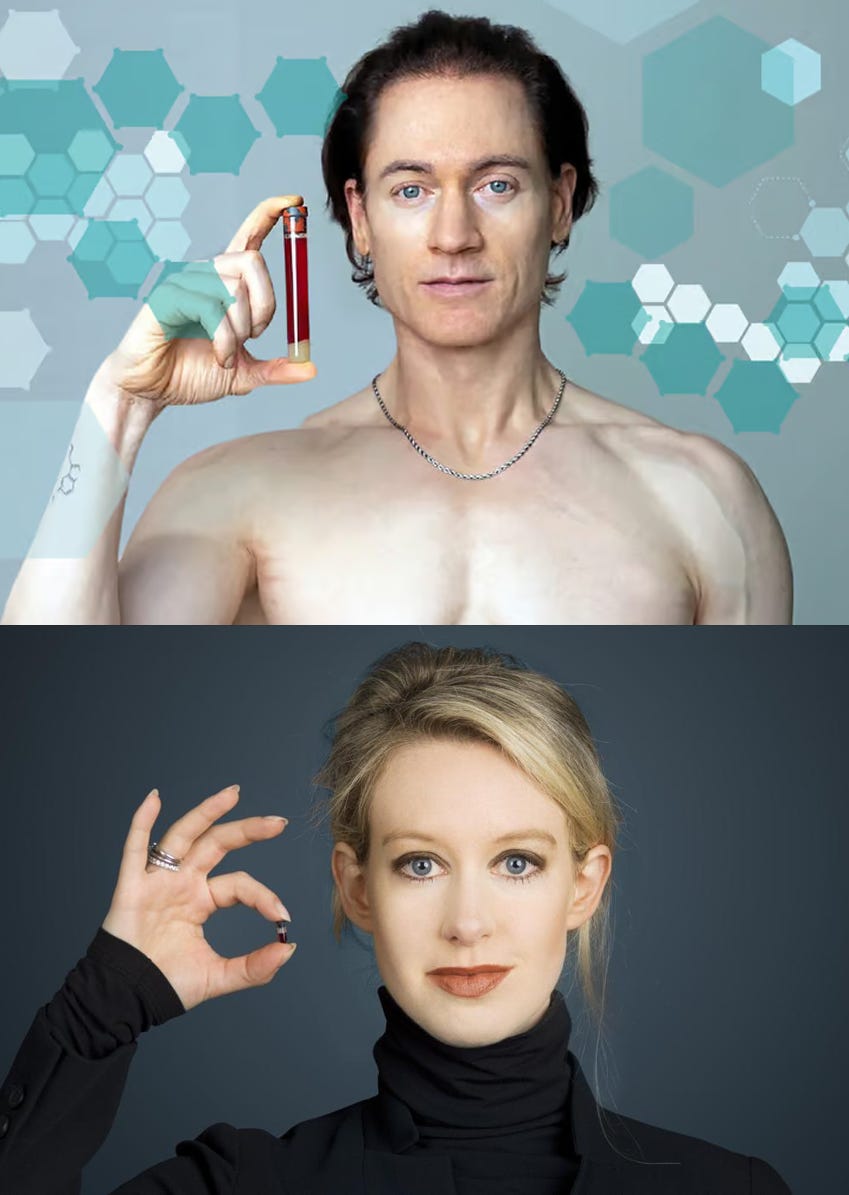

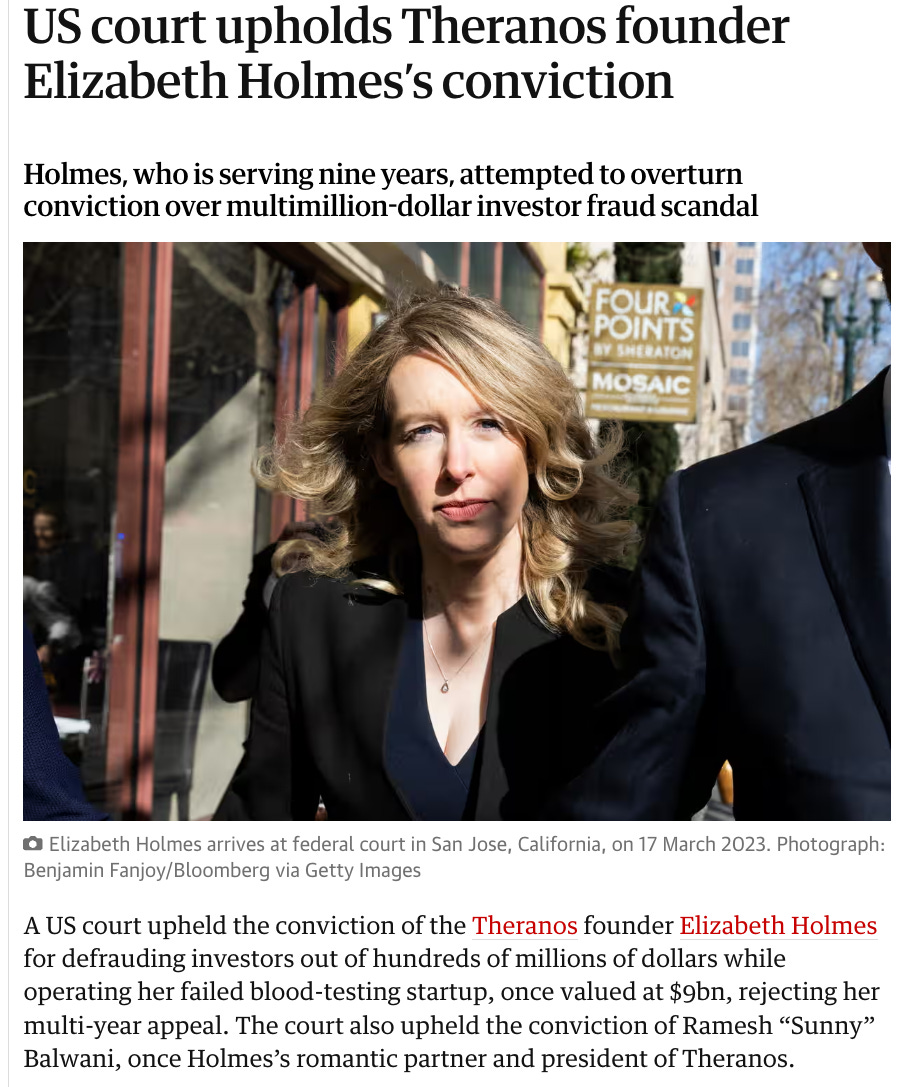




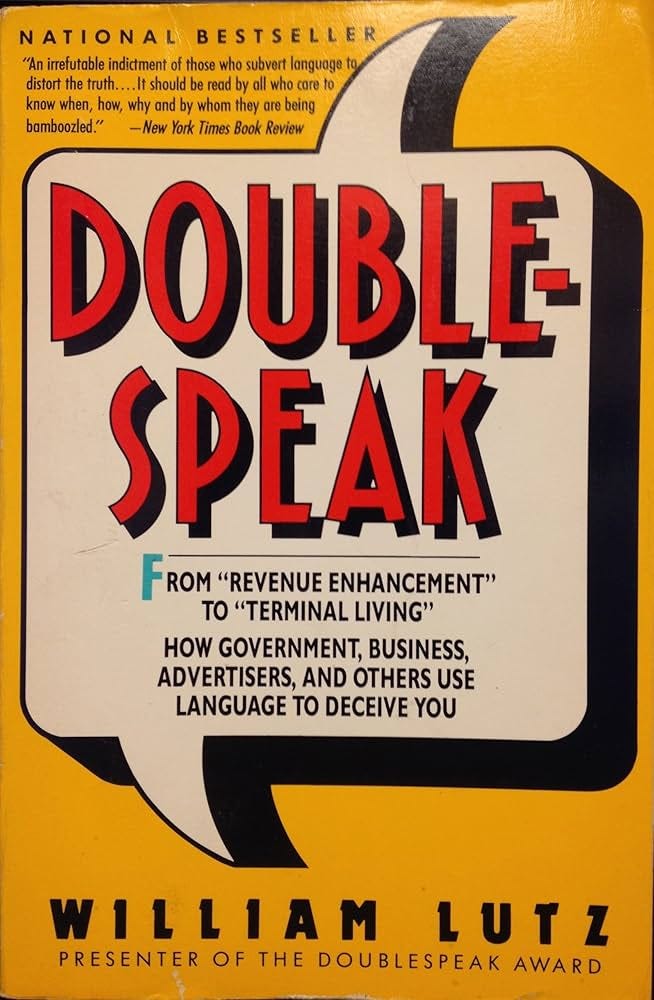





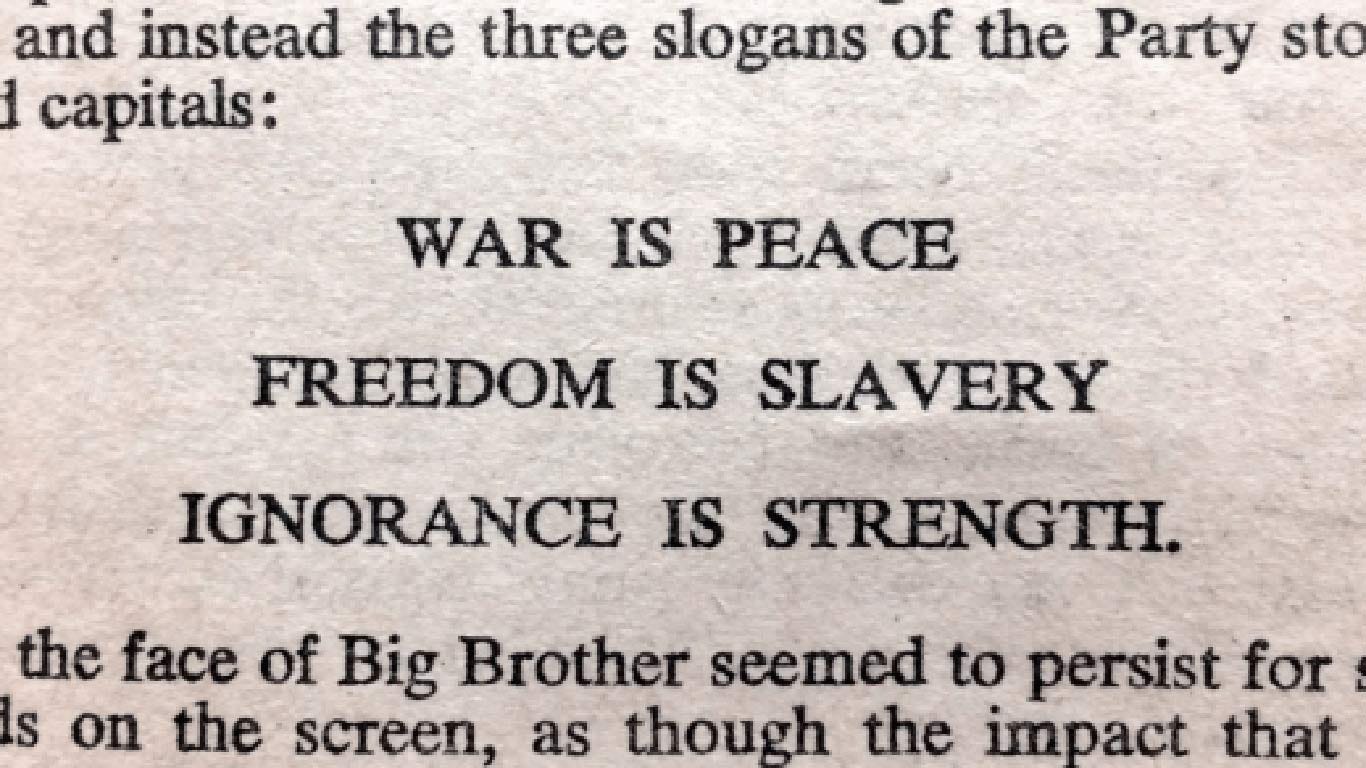



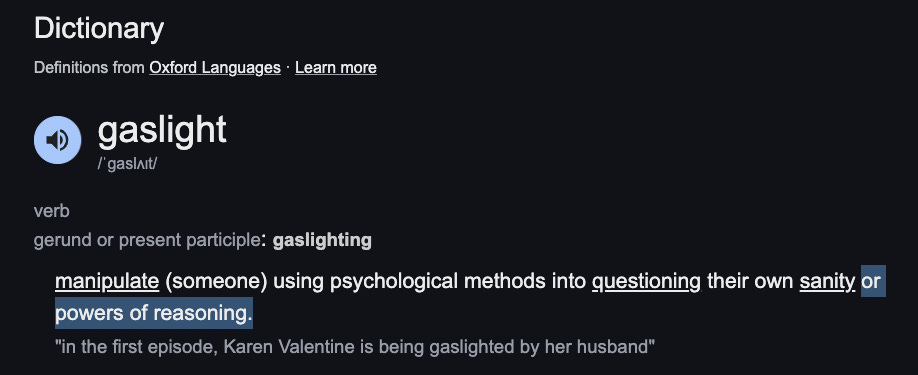



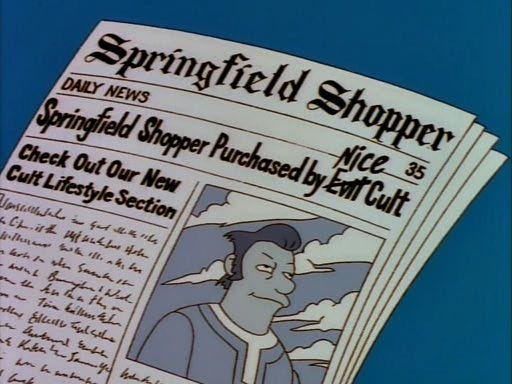
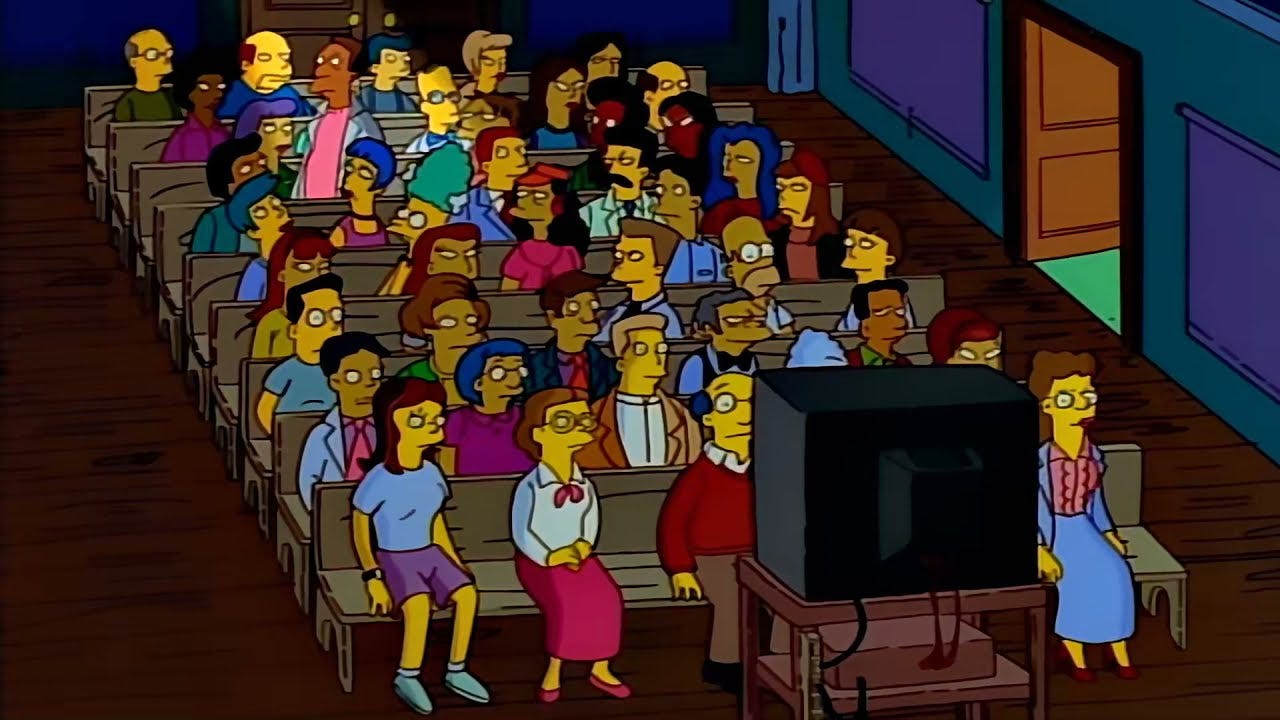




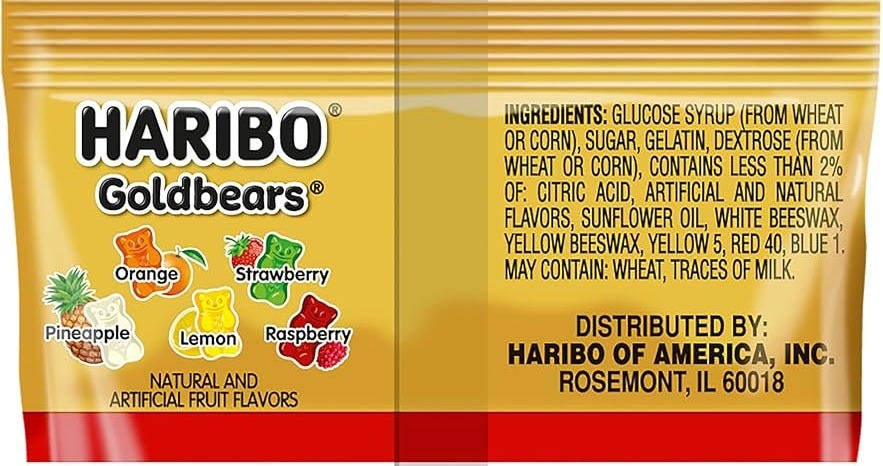

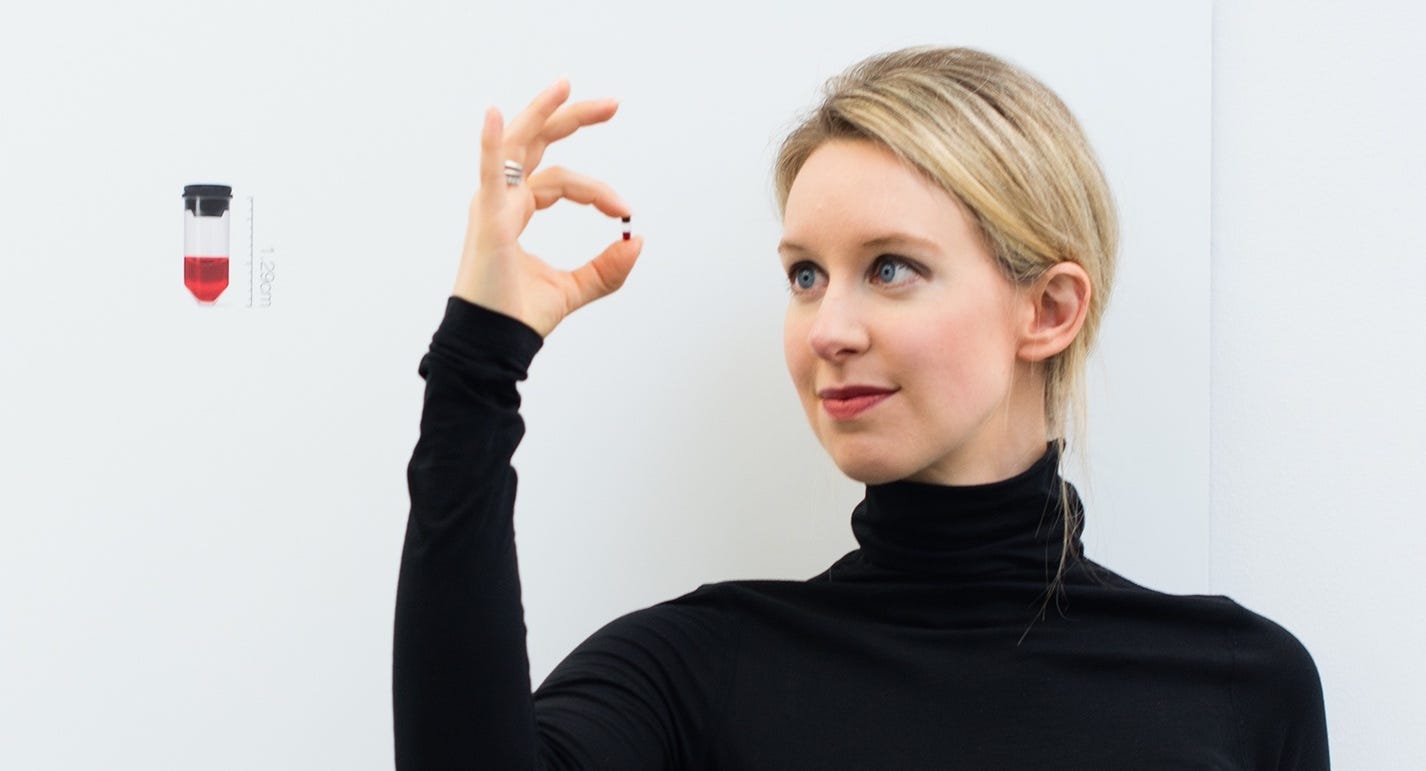



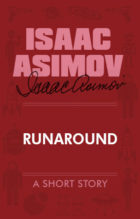
Genuinely enjoyed and waited for every single video, Joseph. Not a huge follower or a fan of him but I saw him rather positively for what he’s doing. Until now, of course. Amazing work and excited for more content like that!
Thank you for the summary of this grifter.
A timeline for his AI nonsense would be interesting. It seems to me e only jumped recently on that bandwagon. A year ago he just seemed to be your usual supplement pusher.
Probably quantum-computing will be the next hype, after AI dies down a bit, and he will jump to that.